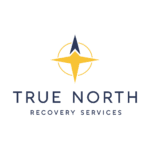Group therapy has long been recognized as a cornerstone in the recovery process for individuals battling addiction and mental health challenges. By fostering a sense of community and shared understanding, group therapy offers unique benefits that complement individual treatment modalities. In this comprehensive exploration, we will delve into the myriad advantages of group therapy, its role in the recovery journey, and how True North Recovery Services integrates this approach to support lasting sobriety and mental well-being.
Understanding Group Therapy
Group therapy involves a trained therapist leading sessions with multiple participants who share similar struggles, such as substance use disorders or mental health issues. These sessions provide a structured environment where individuals can share experiences, offer support, and learn from one another under professional guidance.
The Benefits of Group Therapy in the Recovery Process
1. Peer Support and Shared Experiences
One of the most profound benefits of group therapy is the opportunity to connect with others facing similar challenges. This shared experience fosters a sense of belonging and reduces feelings of isolation that often accompany addiction and mental health disorders. Hearing others’ stories can provide new perspectives and insights, reinforcing the understanding that one is not alone in their struggles.
2. Enhanced Communication Skills
Participating in group therapy encourages individuals to express their thoughts and feelings openly. This practice enhances communication skills, promotes active listening, and helps individuals articulate their experiences more effectively. These improved communication abilities are invaluable in personal relationships and broader social interactions.
3. Development of Coping Strategies
Group settings allow members to share coping mechanisms and strategies that have been effective in their recovery journeys. This exchange of practical advice provides individuals with a diverse toolkit of techniques to manage cravings, handle stress, and navigate triggers in daily life.
4. Accountability and Motivation
Regular group sessions create a sense of accountability among participants. Knowing that others are invested in their progress can motivate individuals to stay committed to their recovery goals. Celebrating milestones together reinforces positive behaviors and encourages continued effort.
5. Diverse Perspectives and Feedback
Group therapy offers exposure to a variety of perspectives, providing individuals with constructive feedback and alternative viewpoints. This diversity can challenge ingrained thought patterns and promote personal growth by encouraging individuals to consider different approaches to problem-solving.
6. Cost-Effectiveness
Compared to individual therapy, group therapy is often more cost-effective, making it accessible to a broader range of individuals seeking support. Despite the lower cost, it delivers substantial therapeutic benefits through collective engagement and shared learning.
7. Social Support Network
Building a supportive network is crucial in the recovery process. Group therapy facilitates the formation of meaningful connections that extend beyond the therapy sessions, providing a support system that individuals can rely on during challenging times.
8. Real-Time Practice of Social Skills
The group setting serves as a microcosm of society, allowing individuals to practice social interactions in a safe and supportive environment. This real-time practice helps individuals develop and refine social skills, boosting confidence in their ability to engage with others outside the therapy context.
9. Reduction of Stigma
Sharing experiences in a group setting helps to normalize the challenges associated with addiction and mental health disorders. This normalization reduces the stigma and shame that individuals may feel, promoting a more positive self-image and encouraging openness in seeking help.
10. Long-Term Recovery Maintenance
Group therapy provides ongoing support, which is essential for long-term recovery maintenance. Continued participation in group sessions helps individuals stay connected to their recovery community, reinforces coping strategies, and offers a platform to address new challenges as they arise.
The Role of Group Therapy in Addressing Co-Occurring Disorders
Many individuals struggling with addiction also face co-occurring mental health disorders, such as depression, anxiety, or PTSD. Group therapy is particularly beneficial in these cases, as it addresses both substance use and mental health issues simultaneously. By discussing these interconnected challenges in a group setting, individuals gain a comprehensive understanding of their conditions and learn integrated strategies to manage them effectively.
How True North Recovery Services Supports Recovery Through Group Therapy
At True North Recovery Services, we recognize the transformative power of group therapy in the recovery process. Our comprehensive outpatient addiction treatment program is designed to provide compassionate care for individuals facing substance use disorders, including opioid and alcohol addiction. We emphasize a holistic approach, understanding that recovery is a deeply personal journey requiring multifaceted support.
Our group therapy sessions are led by experienced clinicians who create a safe and supportive environment for participants to share their experiences and learn from one another. We offer specialized groups focusing on various aspects of recovery, such as relapse prevention, coping skills development, and managing co-occurring mental health disorders.
If you or a loved one is seeking support in the recovery process, consider the transformative potential of group therapy as part of a comprehensive treatment plan. With the right support and resources, a fulfilling life in recovery is within reach.


